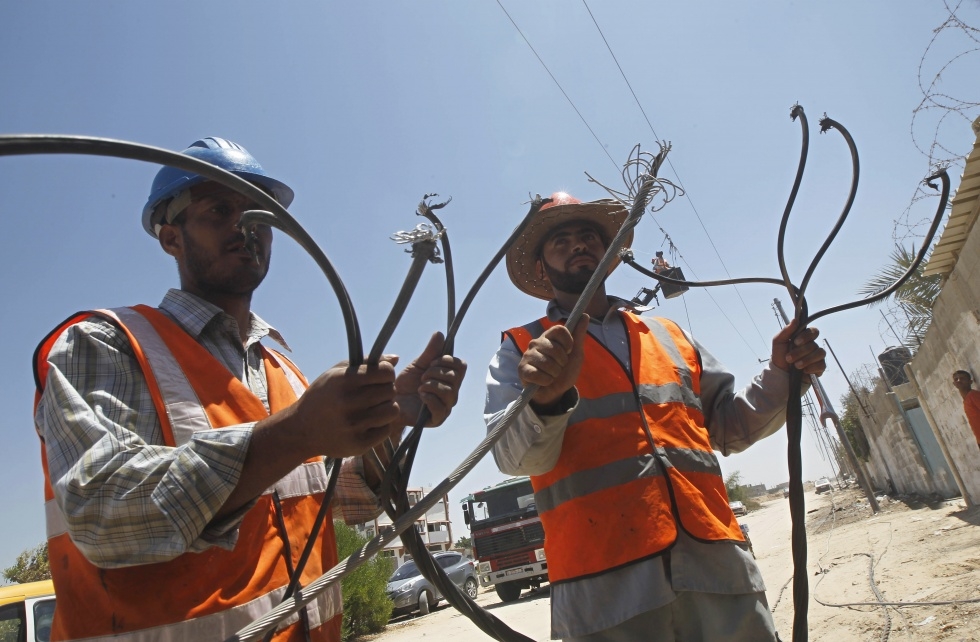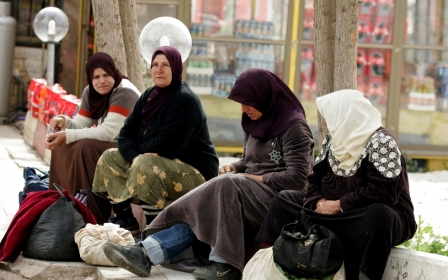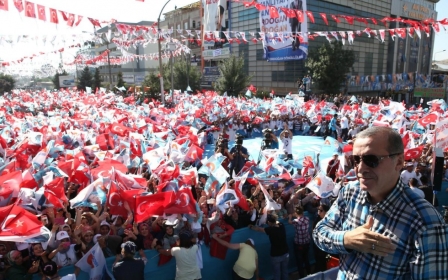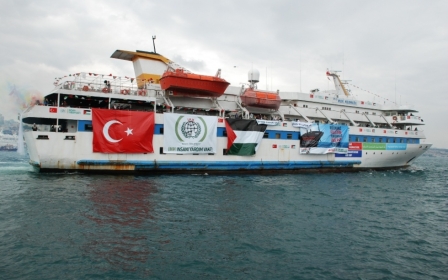Israel rejects Turkish bid to end Gaza power crisis

Palestinian National Economy Minister Mohamed Mustafa said Sunday that the Israeli authorities have officially rejected the proposal of having a Turkish floating power-generating ship near the Gaza Strip coast to help solve the electricity crisis in the embattled enclave.
"The Israeli rejection [to the proposal] requires us to exert more efforts to solve the electricity problem in Gaza," Mustafa said in a statement.
"The past few days have seen an increase in the operations of the electricity sector, extending for eight consecutive hours instead of the usual five," he added.
"We're currently waiting for the Israelis to extend power lines in order to increase supply to the electricity sector," Mustafa said.
Since 2012, electricity in the Gaza Strip has been operating according to a rotation system; it works for six hours in some areas and cuts off for another six hours to provide other areas with power.
Among the factors that exacerbated the electricity crisis in Gaza are problems with the strip's infrastructure, shortage of industrial fuel required to generate electricity, as well as technical issues with Gaza's power plant.
During the latest Israeli offensive on the Gaza Strip - which lasted for 51 days and left 2,160 Palestinians dead - the strip's sole power plant went offline after its main fuel tank was targeted by Israeli airstrikes.
Even though the plant remains functional, it has stopped running due to Gaza's chronic fuel shortage.
The Gaza Strip requires 360 megawatts of electricity – of which only 200 megawatts are currently available – to meet the needs of its roughly 1.9 million residents.
Gaza currently has three sources for electricity: Israel, which provides 120 megawatts; Egypt, which supplies 28 megawatts; and Gaza's power plant, which generates between 40 and 60 megawatts daily.
Hamas slams Israeli NATO petition against Turkey
Meanwhile, the Palestinian movement Hamas said Sunday that Israel's reported petition to NATO against Turkey for hosting its members – as well as its accusations against Hamas for planning terrorist attacks - are but an attempt to distract attention away from its repeated crimes against Palestinians.
"Israel is the root of terrorism in the Middle East due to its crimes against Palestinians," Hamas said in a statement.
"Israel is using the petition [against Turkey] to draw attention away from its crimes and play the victim in a crude, obvious manner," said Hamas.
Hamas went on to say that "Israel is inciting against Turkey because the latter acts as a fail-safe in the region and the entire world."
The movement also stressed that its members currently present in Turkey are "leading political figures known for defending the people of Palestine."
Earlier this week, Israel appealed to NATO to take action against Turkey, claiming that it is permitting Hamas members to plan terror attacks against Israelis from its territory, according to Hebrew news website Ynet.
According to the report, the Israeli government said that Turkey has embraced Hamas leaders after they fled Damascus and that it encourages their anti-Israel activities.
Turkish diplomats, on their part, denied the allegations and described the accusation as baseless.
New MEE newsletter: Jerusalem Dispatch
Sign up to get the latest insights and analysis on Israel-Palestine, alongside Turkey Unpacked and other MEE newsletters
Middle East Eye delivers independent and unrivalled coverage and analysis of the Middle East, North Africa and beyond. To learn more about republishing this content and the associated fees, please fill out this form. More about MEE can be found here.




